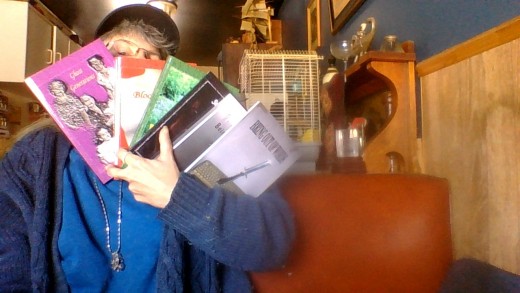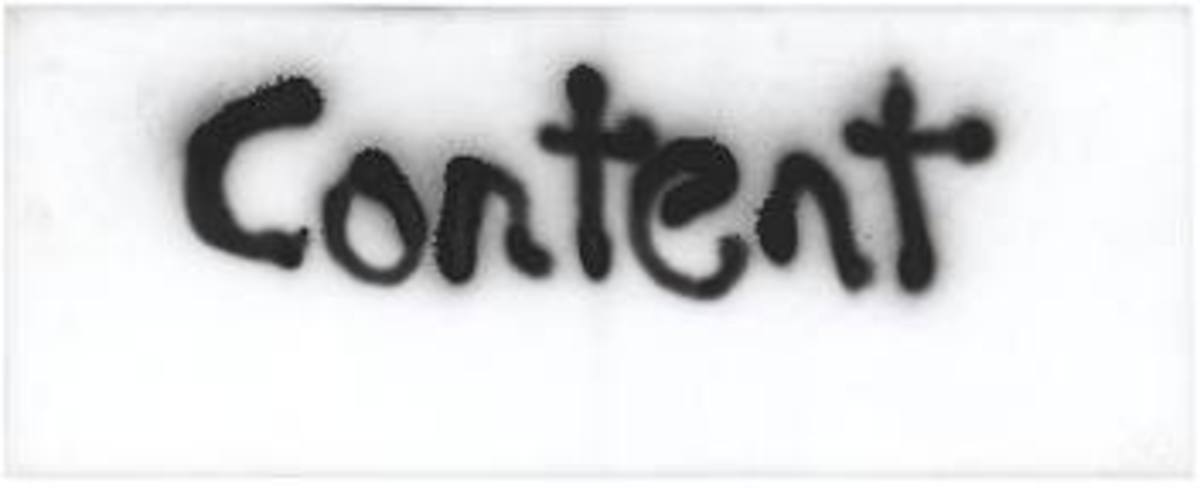How Do I Get A Book Published
This is part four of four on how to write a novel.
Part One - How To Write A Book
Part Two - How To Write A Book Draft
Part Three - How to Write A Manuscript

The Lottery
I am going to be brutally honest with you here. You have as much chance of getting your manuscript published by a major publishing house as you do of winning the lottery. Less chance, perhaps. But, that is not why we write. We write in the hopes of one day being discovered, yes, but we mostly write because we cannot help ourselves. In some ways, all artists have a streak of masochism in them that makes them continue to try even when beaten down. And, you will be beaten down. You may receive hundreds of rejection letters. Each of those letters will eat a tiny bit of your soul. No matter how many rejections you receive, you will never get used to the hurt they cause. It is a terrible thing to know, perhaps, and you may think me mean saying this, but it is best you know what you are in for. It will not be an easy ride to the top of the hill and you may always stay in the valley. I have written eight novels and a book of short stories and I am still waiting for my "big break." One thing for sure, be PROUD of what you have accomplished when that manuscript is finally written, all eighty thousand or so words of it. Of that, you have the right to be able to say with honour that you are an author. It is no small thing.
Agents and Publishers
Agents and publishers, unfortunately, are mostly a very arrogant lot. They rule the roost and can make you or break you. It has always been that way because they have more than enough of us to choose from. In the old days, a writer had to mail in endless printed out copies (I burned out three printers during that time) with return envelopes for them to send the rejections. It was hard enough then with agents getting a thousand or so submissions per year and them accepting only about 10. Due to everyone trying to go Green, this has been mostly done away with in these modern times of email. Unfortunately, the "Green" agents and publishers have caused an immense increase of submissions. Now, every Joe and his auntie is making submissions, not only the serious authors. Your submission will mostly be lost in the crowd. Instead of a thousand per year, agents and publishers are quick to point out in their Form Letter rejections that they are overworked (oh how lucky they are) and receive at least a thousand submissions per week. This is supposed to make the rejected writer not feel so bad about their own rejection. It doesn't. Nobody likes to know that they are just one of the crowd of people "not good enough." Don't despair. You ARE good enough. It is the process that is not good enough. What the agents and publishers want is someone that is either rich or famous, rich and famous, has numerous awards in the literary field, knows someone famous that can vouch for them or knows someone in the publishing business that will vouch for them. The unknown has very little chance of being taken seriously, no matter how good the story. Many agents and publishers will deny this, but a few, the truly honest ones, will admit that this is true and has always been true.
Publishers
Not all publishers demand that you have an agent. Most do. Through intense research, find the ones willing to take a look and write them. Take a chance. Send in your submissions. Try to find publishers that handle your kind of stories, find the person's name so that it shows you read up on them and that they are more than just a Dear Sir. Never pay someone to read your manuscript. A real publisher will never demand money to consider your submission. If they do, they are immoral and possibly illegal.
Agents
This is just about the only job where the employer (you) has to fill out a job application to the employee (agent). The agent is supposed to work for you. They find the good contracts with reputable publishers. Although they work for you, it seems as if you work for them because it is so hard to get a legitimate agent in the cutthroat business called publishing. That is just how it is. Here in Canada, there are only approximately thirty literary agents for the whole country. There are only ten that handle my kind of writing, horror fiction. The odds are against the writer in almost every country. USA has many more agents, hundreds of them, but most of them are not in the running with the big publishing houses. Do research, check up on the ones you choose. Again, do not ever pay money to have them read your manuscript or consider your manuscript. It is immoral and possibly illegal fraud. Be careful who you "hire" if you get a letter of acceptance. Don't ever just give away your full manuscript until you are completely sure who you are dealing with. There is a lot of fraud out there and people waiting to take your hard work from you, copyright or no copyright.
Literary Terms
MSS - Manuscript
SASE - Self Addressed Stamped Envelope. An envelope with your address on the front and a paid postage stamp stuck on so that the agent or publisher can send you a letter of rejection.
Unsolicited - Without an Agent. Many publishers do not accept Unsolicited submissions.
Query Letter - Letter of introduction with a) very brief outline of story to grab their attention b) a bit about the author c) author's awards, if any d) author's home address.
Submission Guidelines - Each agent and publisher has different requirements. Some will ask for a query and three chapters, some a query and one chapter, a few pages or the whole manuscript. Research each agent or publisher with care and find out their specific needs. If you don't, you will be instantly rejected.
Time - It can take a long time before that rejection comes. Usually the process takes up to three months. I received one rejection a year and a half after the submission was sent in. They expect you to wait. Get started on your next book.
Anthology
You may get a letter saying a story or poem has been accepted for publication in an anthology. Careful. Most times these are scams. They hope to sell you their book, at an outrageous price, because you know that your story or poem is printed in it.
Contests
I have always been against any contest that charges you for entry. Most times, these contests are scams. They take your money and you lose, but the letters will come every year, year after year, once you are on their lists. Beware what you enter. Research them well before entering or just avoid anything asking for your money.
Vanity Press
Vanity press are publishing companies that demand money in order for you to publish your book. Sometimes those fees are very high. I would avoid these places if possible.
Print on Demand
On the other side of the self-publishing coin are Print on Demand. As a book is bought by a client, it is printed out and sent to them. You receive small royalties for each book sold. I recommend them. They will not ask you for any money up front, except perhaps a small fee to buy your own book (usually only a third of the cost of what the book would cost on the market) to be checked and ok'd before final publishing. If you cannot get published by a major publishing house, this is the way to go. You will never get rich at it, or rarely, but you can have your books on your shelf and also give them away to friends and family for Christmas, birthdays, etc.
It is a lot of work though. The writer must be writer, editor, formatter and advertiser. The manuscript must be exactly right and ready for the printing process. It takes time to learn the rules and get everything ship-shape. The more time you spend on perfecting it, the better and more professional it will look. No reader wants to read a messy manuscript, that they paid good money for, full of typing errors, bad grammar and terrible form. The final outcome should look exactly like a book that was published by a Professional Publishing House. Anything less is an embarrassment to you and to all writers, giving self-publishing (sometimes called Indie or Independent) a bad name.
Some writers use this service to have a draft copy printed up at a small cost so that it can be read and corrected, read as a book. Reading a printed copy sometimes makes it easier to find those nasty little errors the writer didn't spot on the computer monitor.
Many, tired of rejections, skip the whole Agent and Publisher fiasco and just self-publish, so their words will live on rather than be shoved in the back of a drawer forever. I would recommend that you at least try, ten or twenty agents or publishers, before going the self-publishing road. It may be worth the try and you may win that literary lottery after all is said and done...Good Luck!

© 2016 Susan May Gudge








